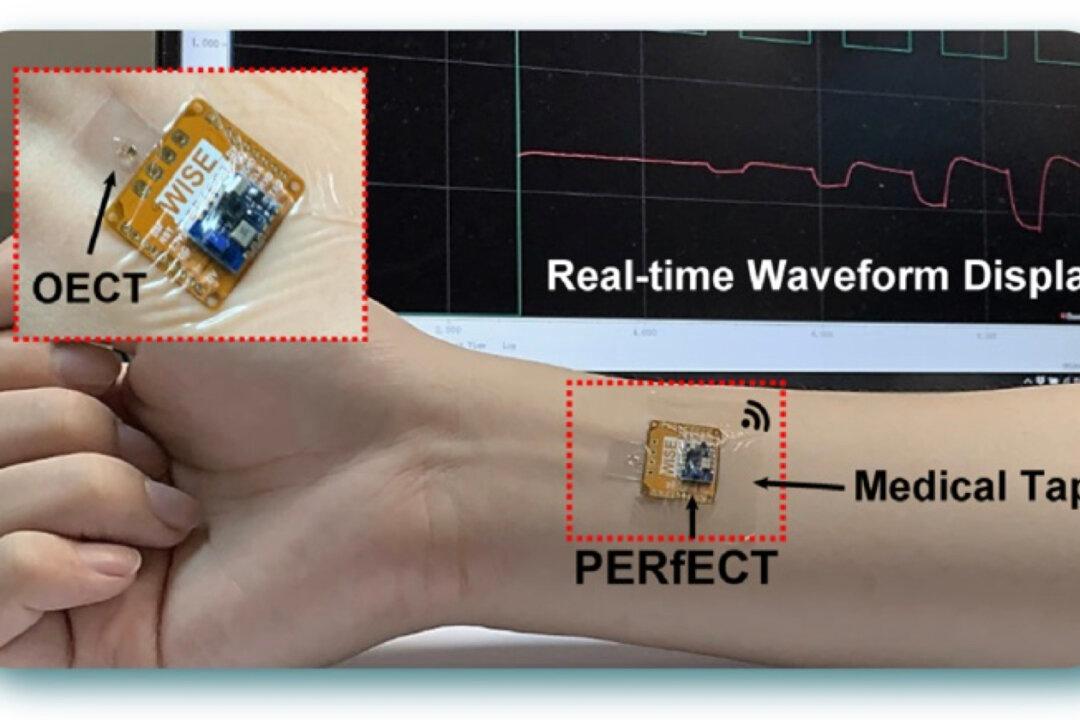There are many kinds of home intelligent health monitoring devices for diabetics. Traditional blood sugar measuring devices require taking blood samples. There are also a number of mobile devices that do not need blood samples, but instead take readings from a sensor implanted under the skin.
Recently, a team at the University of Hong Kong has developed a miniature blood sugar monitoring system named PERfECT that does full-time monitoring, does not need a sensor implant or blood samples, and can be taped directly to the wrist.





